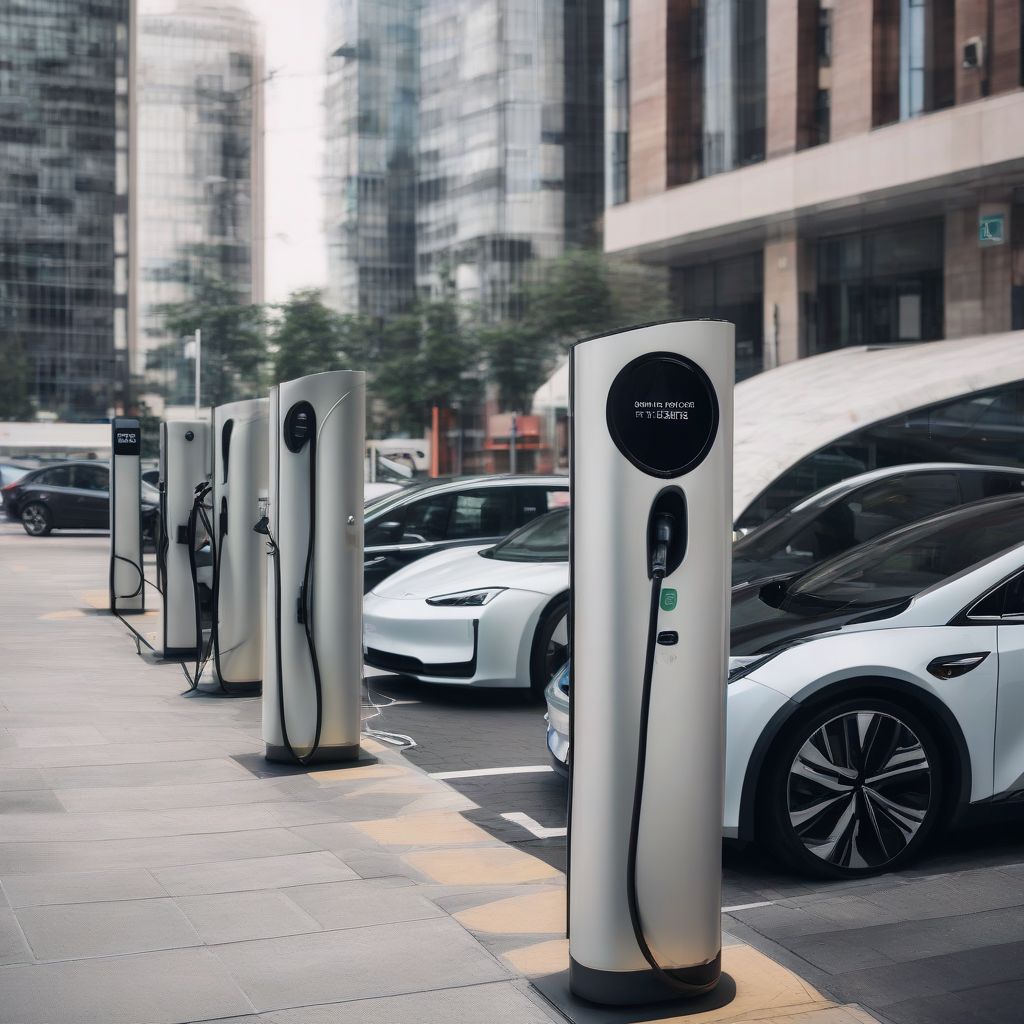Imagine a world where the air is cleaner, our cities are quieter, and our dependence on fossil fuels is a thing of the past. Electric vehicles (EVs) offer a compelling vision of a more sustainable future, but their impact is a complex issue with both significant advantages and challenges to consider. Let’s delve into the multifaceted world of EVs and their role in shaping a greener tomorrow.
Environmental Benefits of Electric Vehicles
Reduced Greenhouse Gas Emissions
One of the most significant benefits of EVs is their potential to drastically reduce greenhouse gas emissions. Unlike conventional gasoline-powered cars, EVs produce zero tailpipe emissions, contributing to cleaner air in urban areas and mitigating the effects of climate change. A study by the Union of Concerned Scientists found that, on average, EVs produce significantly fewer emissions over their lifespan compared to gasoline cars, even when accounting for electricity generation.
Improved Air Quality
The shift to EVs can dramatically improve air quality, particularly in densely populated urban centers. By eliminating tailpipe emissions, EVs reduce harmful pollutants such as nitrogen oxides and particulate matter, which contribute to respiratory illnesses and other health problems. This improvement in air quality can lead to tangible health benefits and improve the overall quality of life for urban dwellers.
Noise Reduction
EVs operate much more quietly than gasoline-powered vehicles, leading to a significant reduction in noise pollution. This quieter operation creates a more peaceful and pleasant environment, especially in urban settings.
 Electric Vehicle Charging Station
Electric Vehicle Charging Station
The Challenges of Electric Vehicle Sustainability
Battery Production and Disposal
While EVs themselves produce zero tailpipe emissions, the production of their batteries has environmental implications. Mining the raw materials for batteries, such as lithium and cobalt, can have significant environmental and social impacts. Furthermore, the disposal of used batteries presents a challenge that requires sustainable solutions, such as recycling and repurposing.
Electricity Generation Sources
The environmental benefits of EVs are directly tied to the source of the electricity used to charge them. In regions where electricity is generated primarily from fossil fuels, the overall emissions reduction from EVs may be less significant. However, as the grid transitions to renewable energy sources like solar and wind power, the environmental advantages of EVs become even more pronounced.
Infrastructure Development
Widespread adoption of EVs requires significant investment in charging infrastructure. Building a robust network of charging stations is essential to ensure convenient and accessible charging for EV owners. This infrastructure development presents both opportunities and challenges, requiring strategic planning and investment.
Life Cycle Assessment of Electric Vehicles
Understanding the complete environmental impact of EVs involves considering their entire life cycle, from raw material extraction to end-of-life management. A life cycle assessment evaluates the environmental impacts at each stage, including battery production, vehicle manufacturing, operation, and disposal. Several studies have shown that EVs have a lower overall environmental impact compared to gasoline cars, even when considering battery production.
Addressing the Challenges and Maximizing Sustainability
Sustainable Battery Production
Efforts are underway to develop more sustainable battery technologies, including exploring alternative materials and improving recycling processes. Research into solid-state batteries and other innovative battery chemistries holds promise for reducing the environmental footprint of EV batteries.
Renewable Energy Integration
Integrating renewable energy sources into the electricity grid is crucial for maximizing the environmental benefits of EVs. As the grid transitions towards cleaner energy sources, the emissions associated with EV charging will continue to decrease.
Policy and Incentives
Government policies and incentives play a vital role in promoting EV adoption and supporting the development of charging infrastructure. Tax credits, rebates, and other incentives can make EVs more affordable and accessible to consumers.
The Future of Electric Vehicles and Sustainability
Electric vehicles represent a significant step towards a more sustainable transportation future. While challenges remain, ongoing advancements in battery technology, renewable energy integration, and infrastructure development are paving the way for a cleaner, quieter, and more sustainable transportation system. As technology continues to evolve and awareness grows, electric vehicles are poised to play an increasingly important role in shaping a greener future for generations to come.
- Denton, Tom (Author)
- English (Publication Language)
- Mecheng, KHT (Author)
- English (Publication Language)
- Hardcover Book
- Wilson, Kevin A. (Author)
- Hardcover Book
- Colias, Mike (Author)
- Quarto, Dr. Mark L (Author)
- English (Publication Language)
- LEITMAN, Seth (Author)
- English (Publication Language)
- Wilson, Tom (Author)
- English (Publication Language)
Conclusion
The transition to electric vehicles is not just about changing the way we drive; it’s about reimagining our relationship with the environment. EVs offer a powerful solution to reduce emissions, improve air quality, and mitigate the impacts of climate change. While challenges remain, the ongoing innovation and investment in this technology promise a future where sustainable transportation is the norm, not the exception. Let’s continue the conversation – share your thoughts, concerns, and hopes for the future of electric vehicles in the comments below. Are you considering switching to an EV? What are your biggest questions about their environmental impact?











